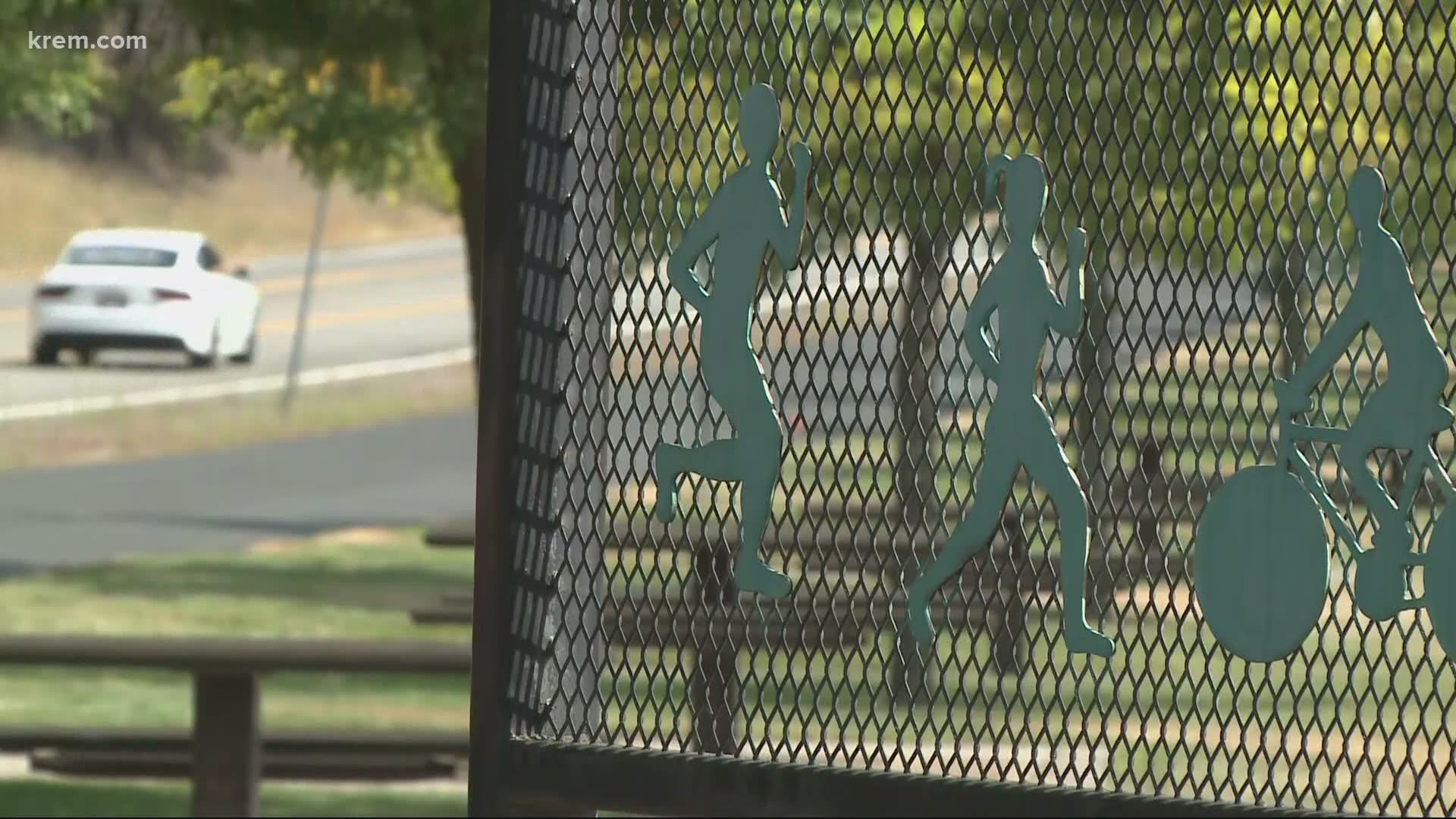Amid the COVID-19 pandemic, plans for the Coeur d'Alene Marathon are moving forward this weekend.
While the event is set to bring roughly 1,500 runners to the Lake City over three days, organizers say they've made several changes to the event to protect participants from coronavirus.
"The event is going to look very different from past years," said Race Director Ryan Hite.
Hite also owns Negative Split, an events production company that typically organizes over 100 races across the Inland Northwest each year.
"It's been a season of pivoting left and right, that's for sure," Hite said.
Notably, the Coeur d'Alene Marathon will take place over several days this year instead of just one day like previous years. Participants can compete in the marathon, half-marathon, 10k and 5k races on either Friday, Saturday or Sunday.
Additionally, runners have been asked to select various start times over the course of the day. That's a change from years past, Hite noted, when all runners would start their respective races at the same time.
"It would be thousands of runners all starting together and running out on the streets. And it's not going to look that way this year," Hite said.
Instead, organizers are allowing eight runners at a time to begin racing every five minutes. Runners are allowed to begin running at any moment within their allotted five-minute slot.
"We're basically more or less setting it up like golf course with tee times," Hite explained
The marathon's plan to bring runners together is markedly different from that of other Inland Northwest athletic events, including Hoopfest and Bloomsday, which aren't hosting in-person gatherings this year. Both Bloomsday and Hoopfest have opted to hold strictly virtual events in the wake of COVID-19.
As of Tuesday evening, the Panhandle Health District was reporting 2,497 coronavirus cases across Idaho's five Northern counties. Twenty-two people were listed as being currently hospitalized, the health district reported and 28 people had died after contracting the virus.
The health district confirmed that marathon organizers reached out to the agency for guidance and feedback related to the event and safety protocols.
"They have been very supportive of our recommendations and have made many adjustments to their plan to make it work," said PHD spokeswoman Katherine Hoyer.
Coeur d'Alene Mayor Steve Widmyer told KREM in an email that "the race directors worked very closely with Panhandle Health to create a race that is safe."
Hite said that the marathon's relatively small participant size compared to that of Bloomsday allowed race organizers to make appropriate changes to accommodate social distancing. Additionally, Hite argued, the marathon wasn't bringing as many people from out of town to the area compared to Bloomsday.
While 2,500 people were projected to compete in the marathon before COVID-19 hit, Hite said the amount of registered runners currently stands closer to 1,500.
"We're doing as best we can to try to provide a service for the community of runners that we have, and obviously still trying to stay safe and do the right thing for the better good at the time too," said the race director.
Unlike previous events, Hite said that the marathon won't feature post-race activities, vendor booths, or a beer garden.
"I don't want to say we're kicking people out, but more or less we're kicking people out after the event," Hite said with a chuckle. "We're trying to reduce the amount of congregating."
Hite described the event as being, to his knowledge, "largest chip-timed race to happen in the country since March."
"When it comes to the real roots of why we do this, it's really to provide these opportunities for our community to do great things and really rally together," he said of the marathon, which also serves as a fundraiser for the North Idaho Centennial Trail Foundation.
"Mentally, I think people are excited to get back out and come together as a community, albeit socially apart."

